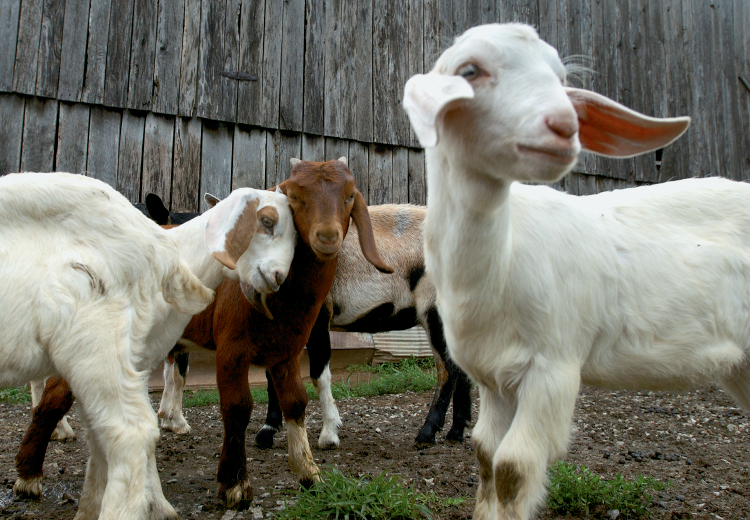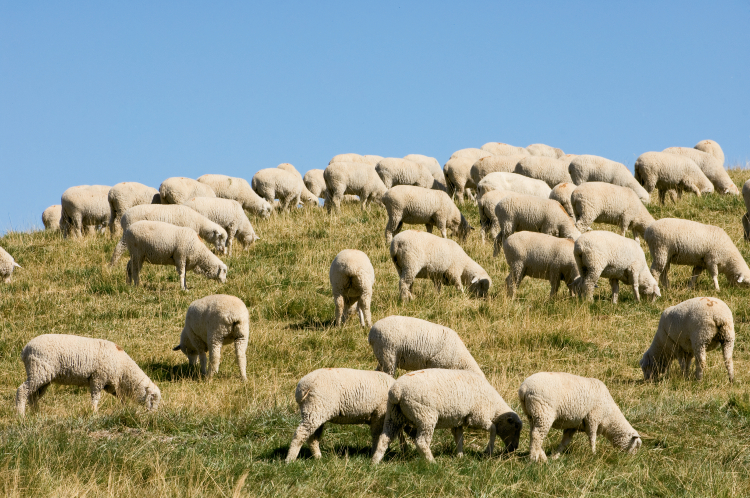Home > Kentucky > Kentucky Crops & Livestock > Kentucky is Well Suited for Sheep and Goats
Kentucky is Well Suited for Sheep and Goats
For the first time ever, goat meat made the menu in 2013 at the Kentucky State Fair Commodities Breakfast.
The goat bacon brought needed attention to Kentucky’s goat and sheep industries. Largely unknown to many, these represent some of the fastest growing sectors of Kentucky agriculture.
“The most versatile animals anyone can have in the state of Kentucky are sheep and goats,” says Kelley Yates, Kentucky Sheep and Goat Development Office executive director. “Kentucky has a massive forage base. We have lots of areas that we can’t grow any crops on. Those are good pasture grounds for sheep and goats.”
Kentucky goat numbers grew at a staggering pace between 1997 and 2007, surging from about 16,000 to 98,000 goats, according to the National Agricultural Statistics Service. Since then, the Kentucky Sheep and Goat Development Office says goat numbers have declined and settled at around 68,000 in 2013 – still a historically large number for Kentucky.
Meanwhile, sheep numbers have increased more than 50 percent in 10 years. In 2013, about 43,000 sheep grazed Kentucky farms.
Niche Markets Abound
Goats and sheep collectively produce meat, fiber and milk. They require small investments in acreage, equipment and machinery. And opportunities abound in niche markets.
Martin Meadow Farms in Central Kentucky sells value-added goat meat products, like jerky, goat roast and bacon.
“We’re working toward more Americans consuming goat meat,” owner Denise Martin says.
“The nutritional qualities of goat, a red meat, surprise most people. A similar sized serving contains half the calories of beef, and more iron and less saturated fat than other meats, including chicken.”





